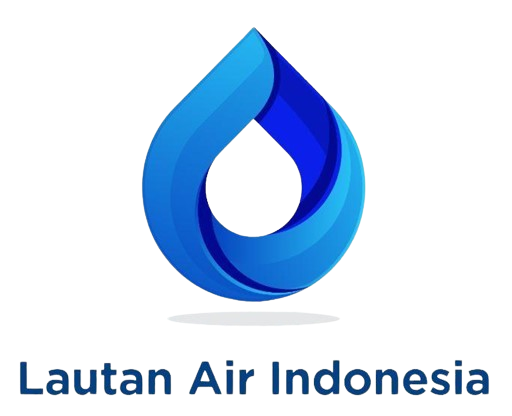Reverse Osmosis (RO) is a water purification technology that is widely used in various industries, from manufacturing, pharmaceuticals, to power plants. However, one of the biggest challenges in the RO system is scaling, which is the formation of mineral deposits that inhibit membrane performance.
If not handled properly, scaling can cause decreased filtration efficiency, increased energy consumption, and higher operational costs.
Scaling on the RO membrane can reduce water permeability, increase operational pressure, and shorten the life of the membrane. As a result, the industry must spend additional costs for maintenance, membrane replacement, or even detrimental production downtime.
Factors Causing Scaling on RO Membranes
Scaling occurs due to precipitation of dissolved salts that pass through the RO membrane. Some of the main factors that cause scaling include:
1. Ion Content in Raw Water
Raw water used in RO systems often contains ions that cause scaling, such as:
Calcium (Ca²⁺) and Magnesium (Mg²⁺) → Causes calcium carbonate (CaCO₃) and magnesium hydroxide (Mg(OH)₂) which are difficult to dissolve.
Sulfate (SO₄²⁻) → Interacts with calcium to form calcium sulfate (CaSO₄) which is easy to precipitate.
Silica (SiO₂) → Forms in high pH conditions and can cause fouling that is difficult to clean.
2. Uncontrolled pH Levels
Water pH that is too high or too low can accelerate mineral precipitation, especially carbonate and silica. If the pH exceeds 8.5, the risk of calcium carbonate scaling increases drastically.
3. Too High a Recovery Rate
Industry often increases the recovery rate (the percentage of water converted to permeate) to conserve water. However, if the recovery rate is too high, the ion concentration in the reject water increases, accelerating scaling.
Read Also: Poor Effluent Quality in Clarifier Tanks: Identifying and Resolving Flow Rate Issues
4. Lack of Effective Pretreatment
RO systems that are not equipped with adequate pretreatment are more susceptible to scaling. Lack of softening, filtration, or antiscalant systems can accelerate mineral precipitation on the membrane.
Impact of Scaling on Industrial RO Systems
If scaling is not prevented or handled properly, the impact can be very detrimental:
- Reduced Water Production: RO system capacity decreases due to clogged membranes.
- Increased Energy Consumption: Pumps work harder to combat increased pressure.
- Shorter Membrane Life: Membranes must be replaced more frequently as their performance degrades more quickly.
- Production Downtime: Industries must stop operations for membrane maintenance, leading to potentially huge losses.
Prevention and Handling of Scaling on RO Membranes
To ensure that the RO system remains optimal and free from scaling, the industry can implement the following steps:
1. Optimizing Raw Water Pretreatment
The first step in preventing scaling is to ensure that the raw water entering the RO system is properly prepared. Some effective methods include:
- Softening using ion exchange resins to remove calcium and magnesium.
- Multi-stage filtration such as sand filters, activated carbon, and cartridge filters to reduce suspended particles.
- Dosing Antiscalant specifically designed to prevent mineral precipitation.
2. Control pH and Recovery Rate
- Adjust the pH of the raw water to stay within a safe range (6.5–7.5) to minimize the risk of carbonate and silica precipitation.
- Ensure that the recovery rate is not too high so as not to increase the concentration of ions that can cause scaling.
3. Routine Monitoring and Maintenance
- Perform regular water analysis to measure parameters such as TDS, turbidity, and ion content.
- Scheduled membrane cleaning (CIP – Clean-in-Place) using appropriate cleaning chemicals.
- Use an automatic control system to detect changes in pressure or flow that could indicate scaling.
4. Professional Services from Lautan Air Indonesia
Lautan Air Indonesia provides comprehensive solutions to prevent and handle scaling in industrial RO systems, including:
- Consultation and Water Analysis to determine the potential for scaling before a problem occurs.
- Provision of Quality Antiscalant formulated to prevent scaling from various types of ions that cause fouling.
- RO Membrane Maintenance Program includes cleaning, monitoring, and system optimization to keep operating efficiently.
- Integrated Pretreatment System such as softener, clarifier, and filtration to ensure quality raw water before entering the RO membrane.
Conclusion
Scaling on RO membranes is a major challenge for industries that rely on this technology for water treatment. The main causes of scaling include ion content in raw water, uncontrolled pH, high recovery rate, and lack of good pretreatment system. If left untreated, scaling can reduce water production capacity, increase energy consumption, and shorten membrane life.
The best solution is to apply effective pretreatment, control pH and recovery rate, and perform routine maintenance. Lautan Air Indonesia is ready to assist the industry with complete services ranging from consultation, provision of antiscalant, to maintenance of RO systems to keep them operating optimally.
Contact Lautan Air Indonesia now to get the best solution in preventing and overcoming scaling on your RO system!


